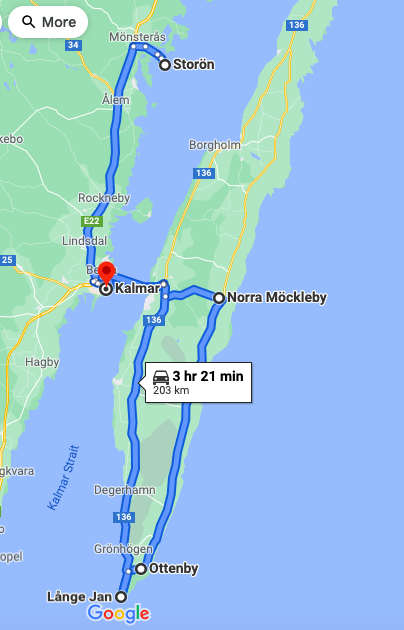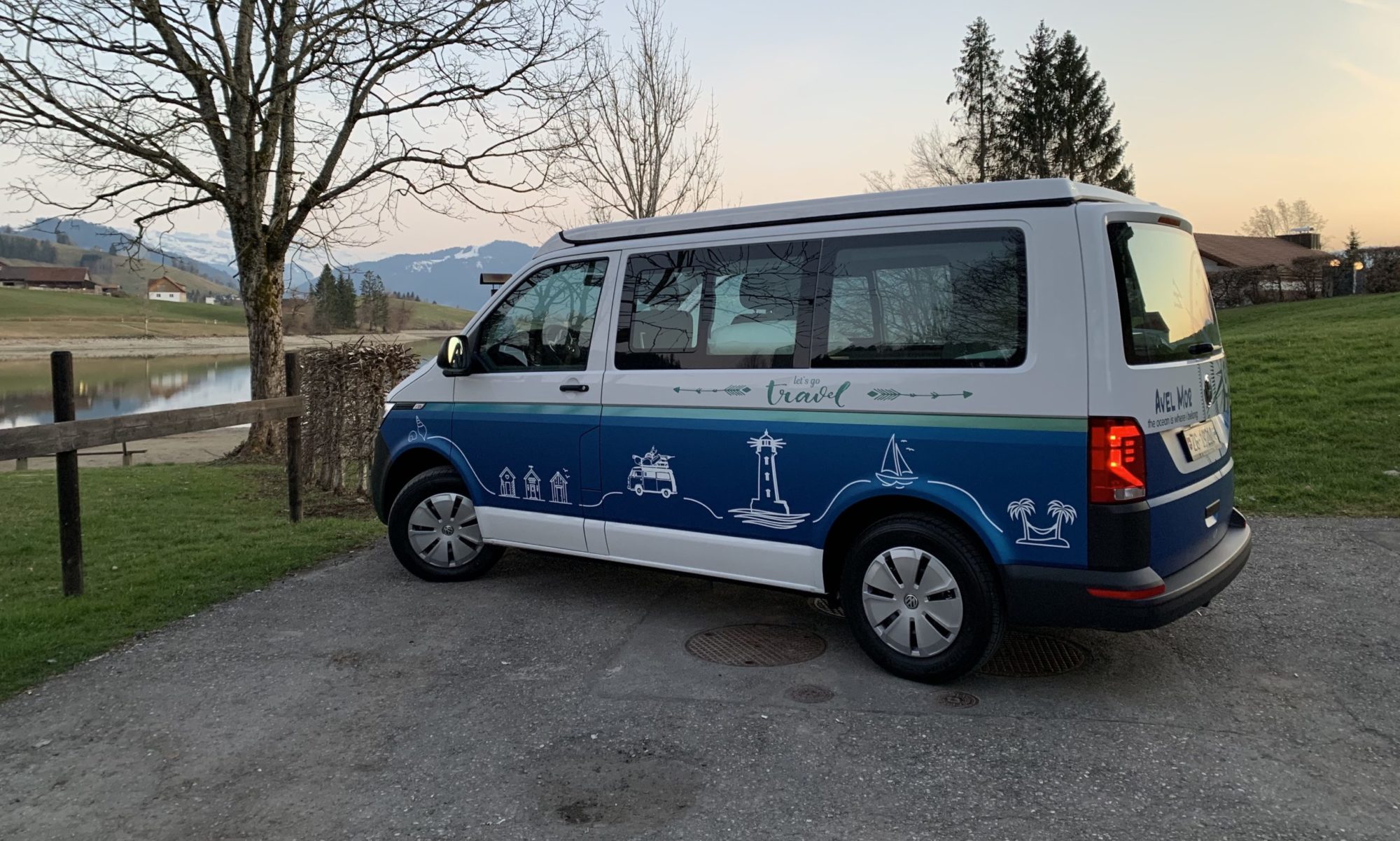1 August 2021
I have made it a habit, the two minutes‘ plank I’m doing every morning, ever since I went for morning walks with Maria in Fellingsbro. So, also here I go for a nice walk around the point of the peninsula with nice views onto the water and do my plank.

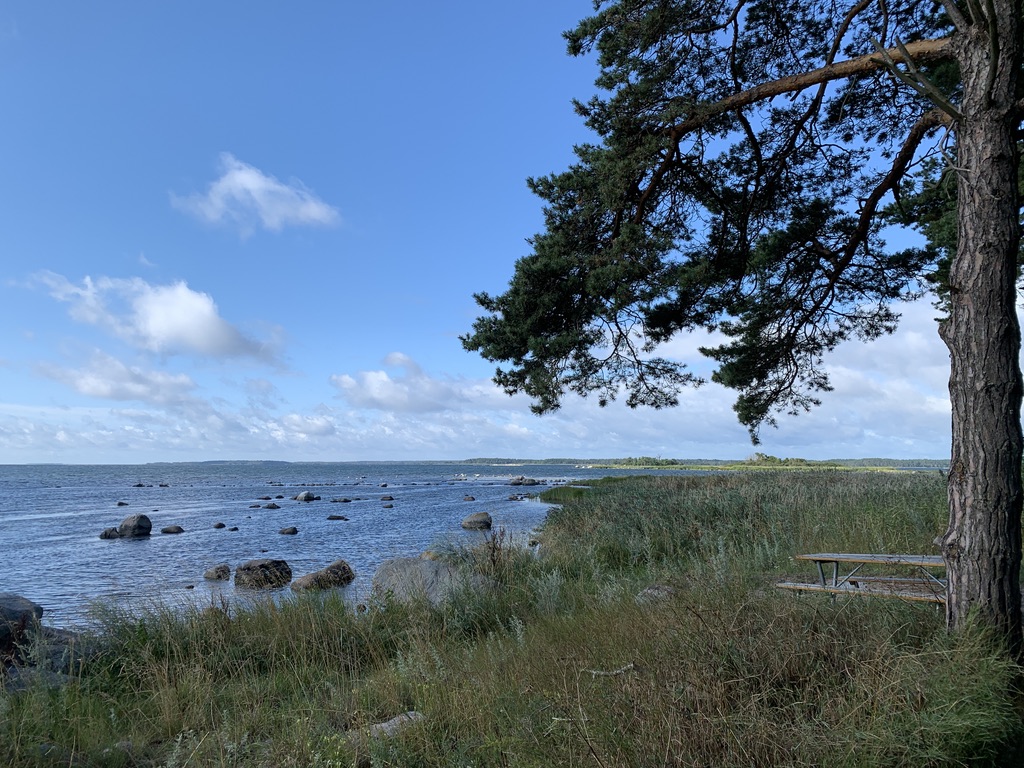
Before I will drive down to Kalmar and over the six kilometer long bridge to the island of Öland I pay a visit to Pataholm supposingly being a nice village. It is, alright, a handful of timber houses again situated at the sea, a gallery and a café. I have a nice piece of cake and a far too strong coffee which will cause mildly severe heart problems afterwards – ughh.
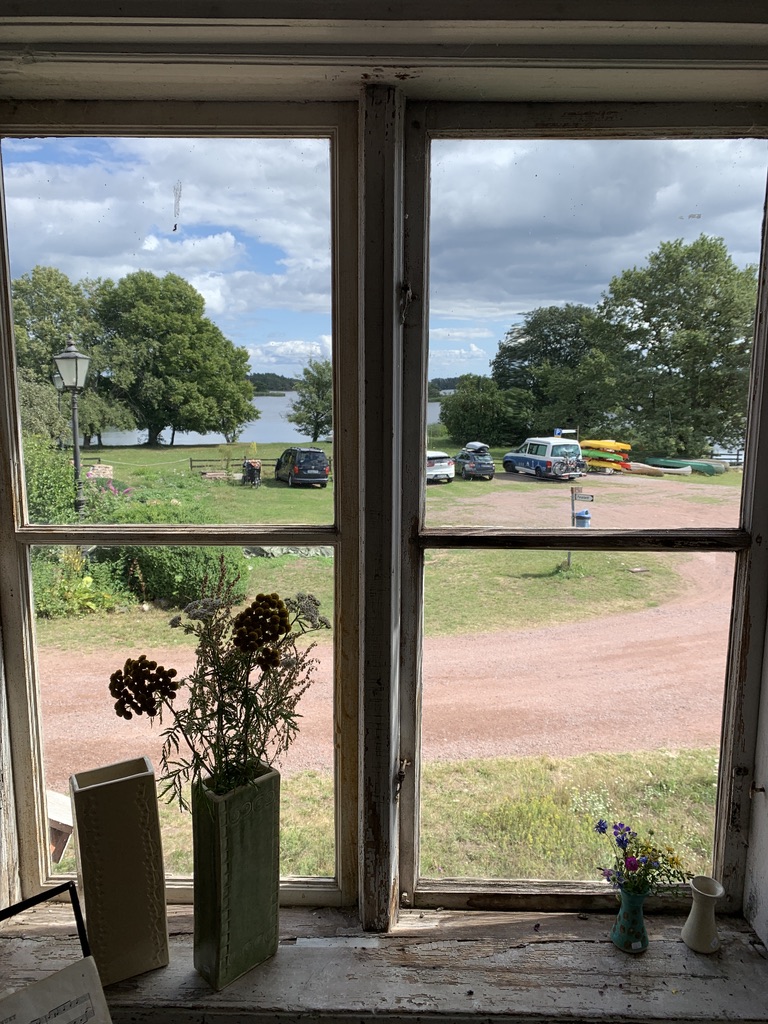
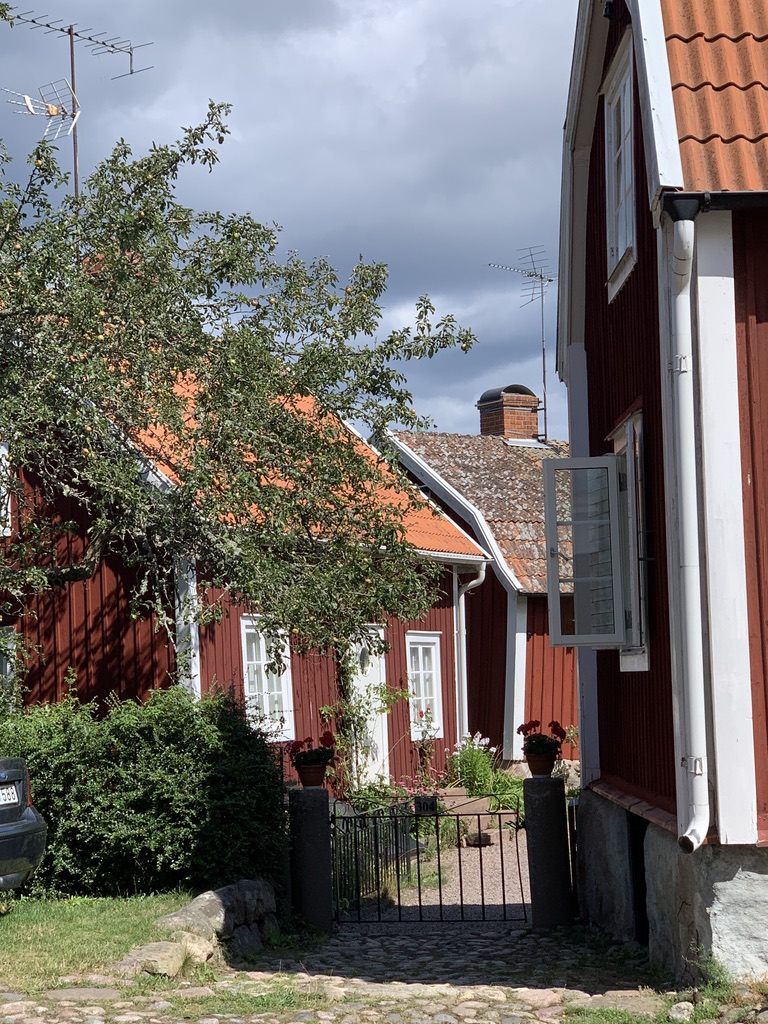
Then I drive over to Öland. As everybody, so I was told, goes to the northern beaches, I’m heading to the south of the island. Öland is about one 147 kms long but only 16 kms wide. The scenery has changed considerably. I have got used to thick mixed forests here in Smâland, spruce (Fichte), aspen (Esche), alder (Erle) and birch (Birke). Here forest patches alternate with wide open crop fields. The landscape reminds me of those in England, Brittany or parts of Ireland – and I instantly feel at home. There are windmills scattered along the road and a strong wind is rattling at my van.
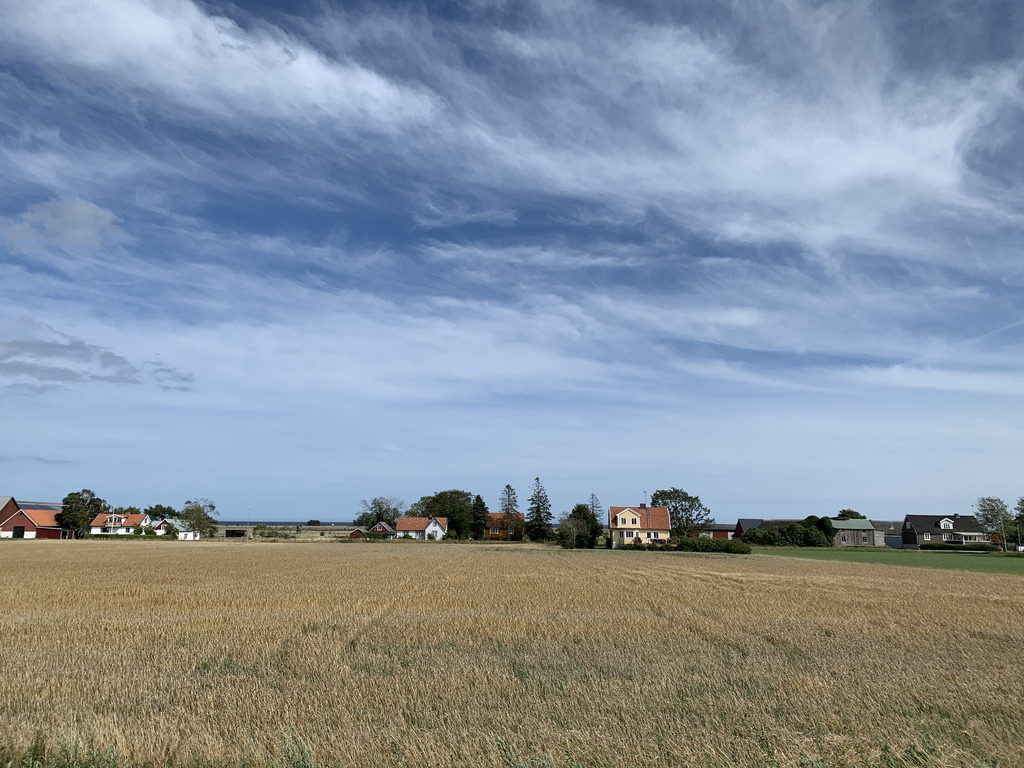
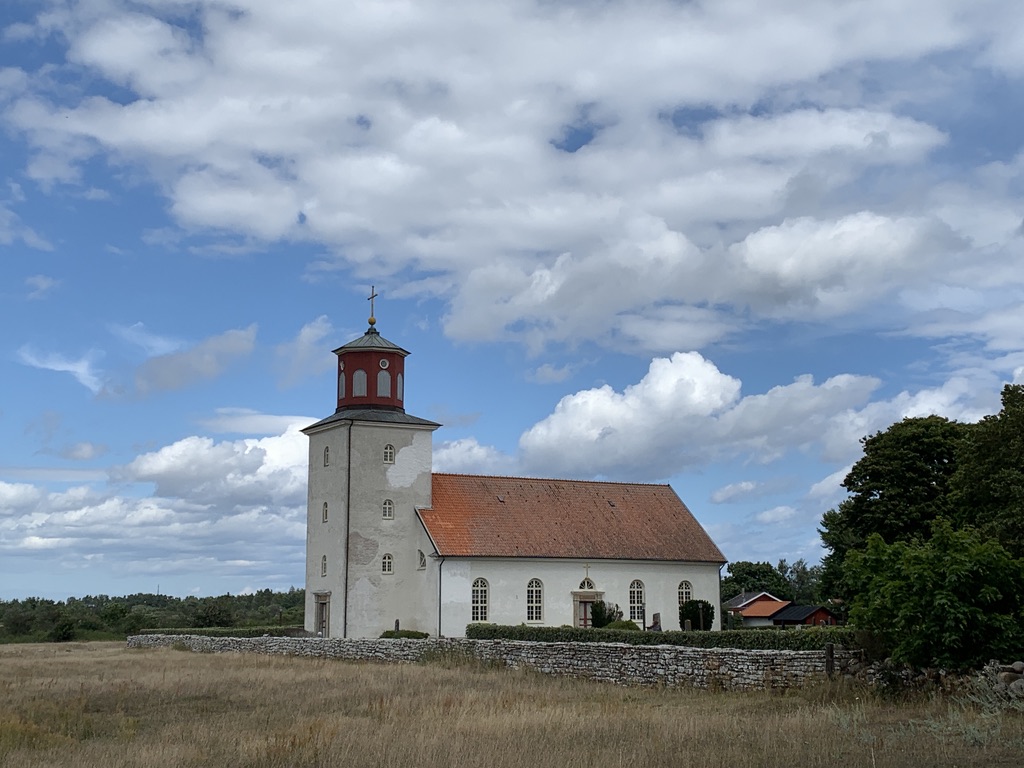
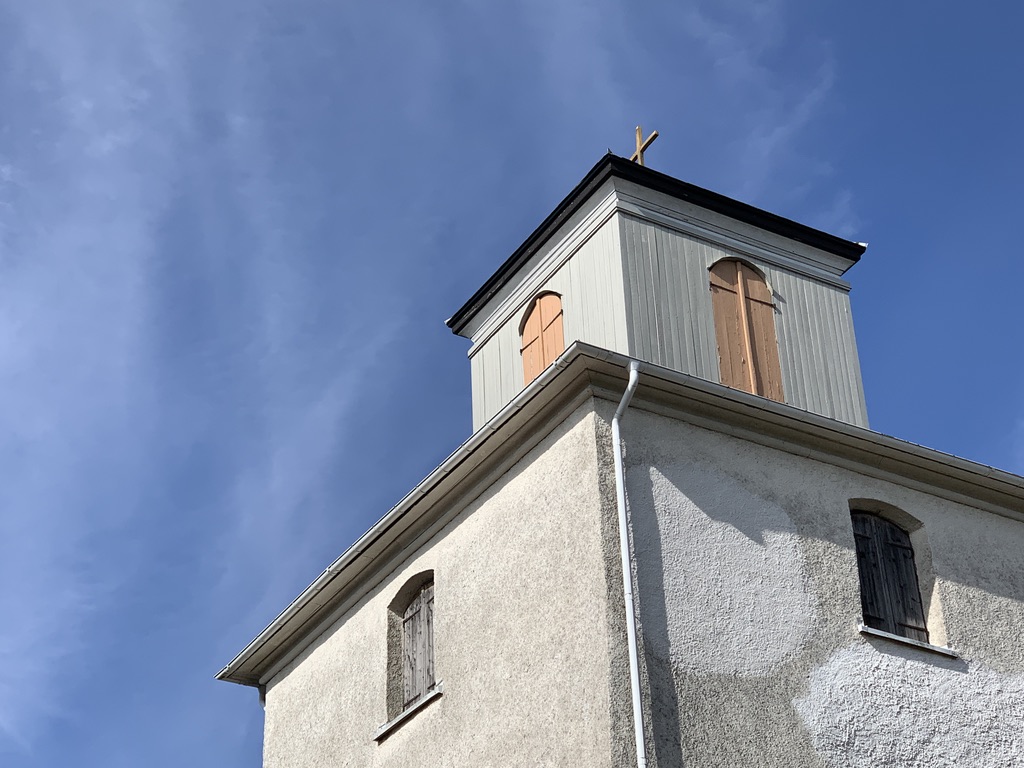
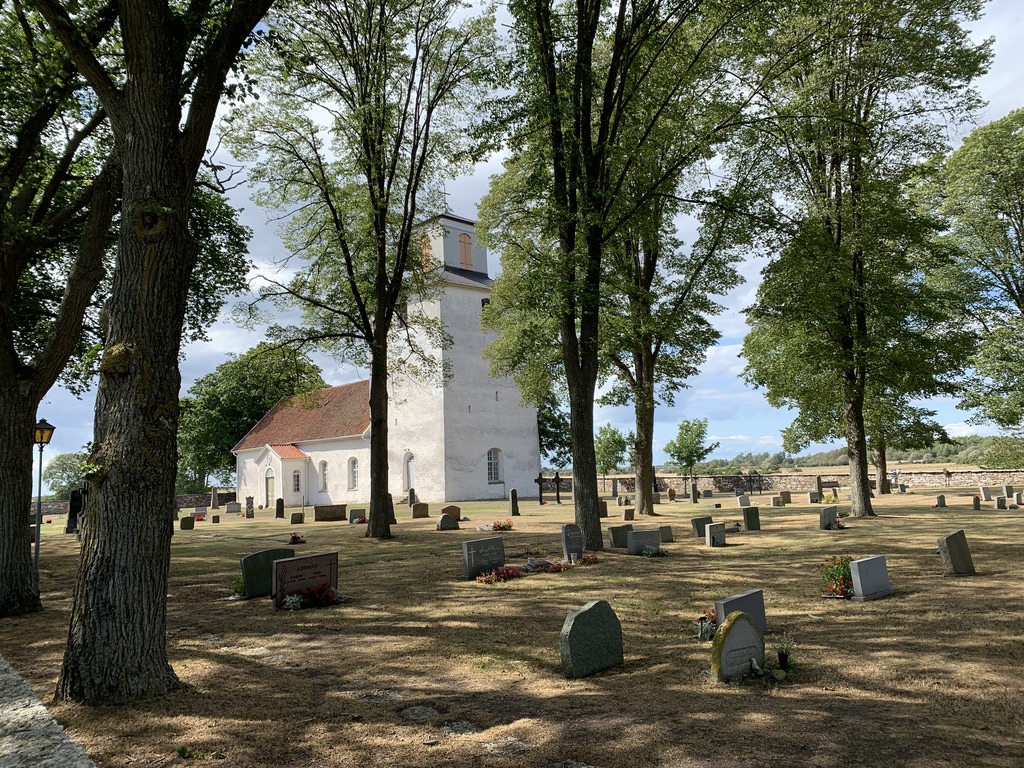
There are also prehistoric alignements, little Stonehenge or rather Carnac, but far less impressive as those of Carnac in Brittany. The nice thing being that you can still walk between them and there is exactly one tourist – me!
In Carnac you are only allowed to walk past some of the standing stones. It was not vandalism but the sheer vabriation of marching steps caused by the thousands of visitors that made some of the stones fall. So, authorities inhibited free walking in most places.
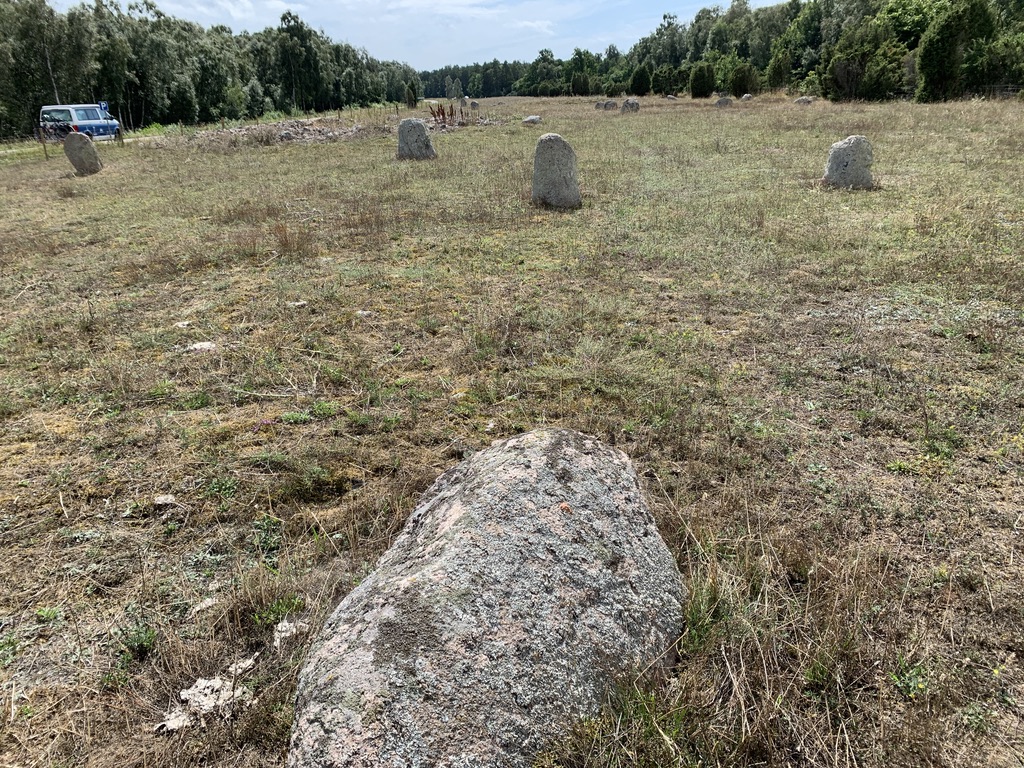
I drive to the far southern end of Öland, Södra Udde, and as I have always a liking of lighthouses, the guardian of the sea, I have to cast an eye on Lange Jan, or Long John, what it would be in English.
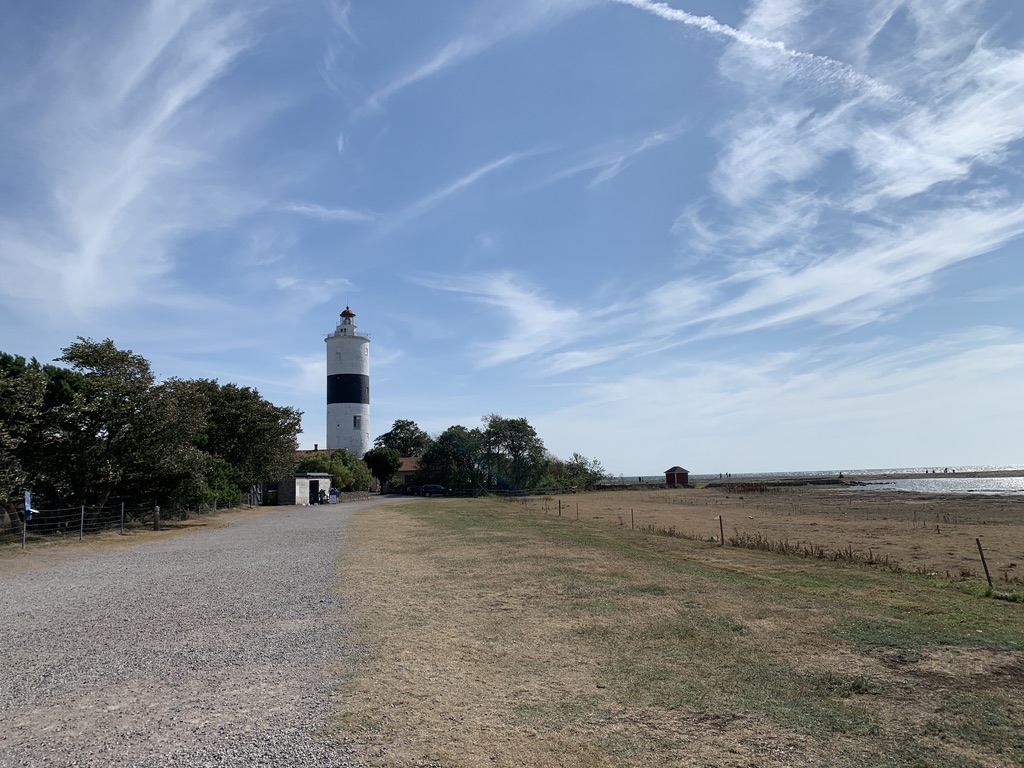
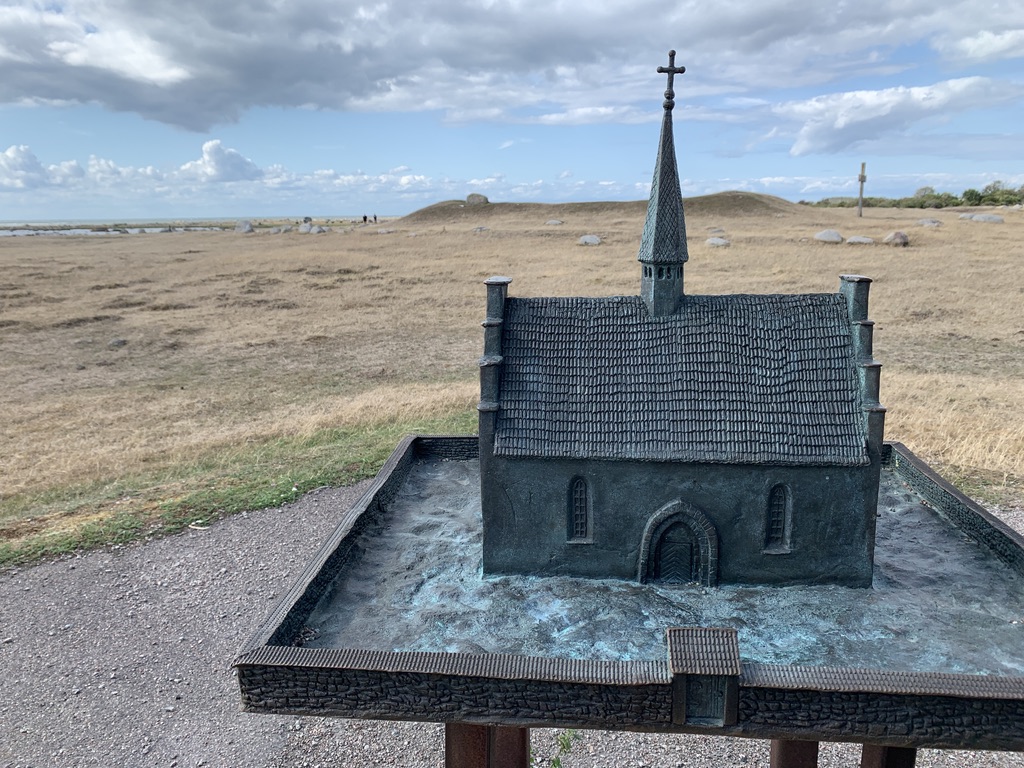
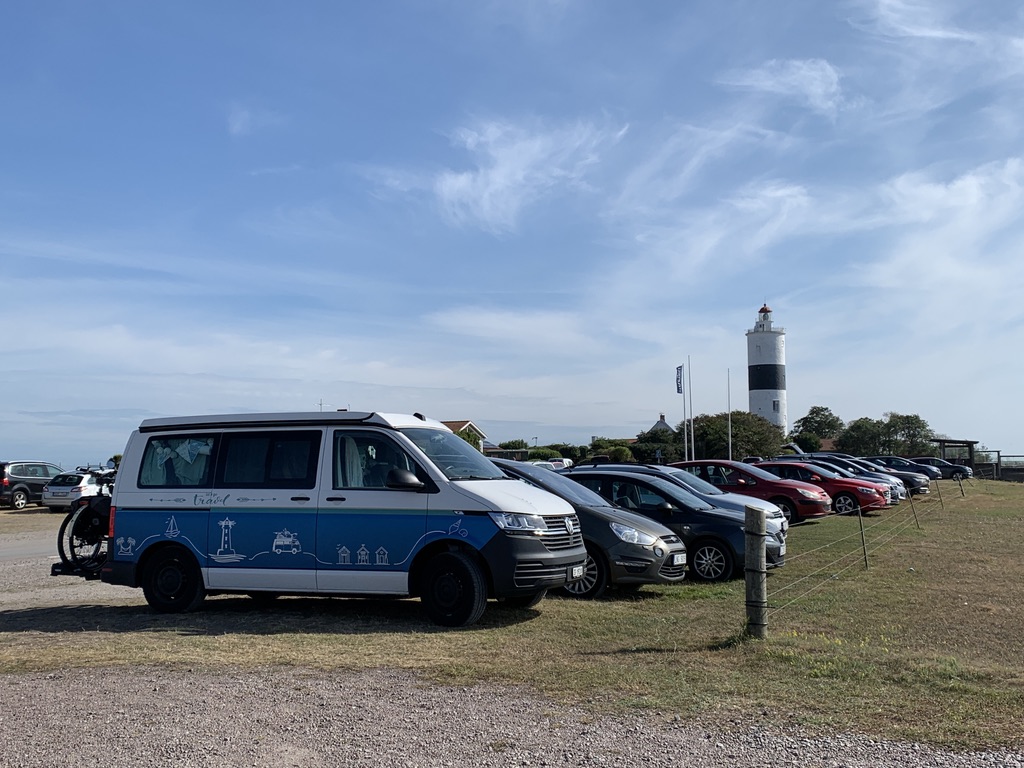
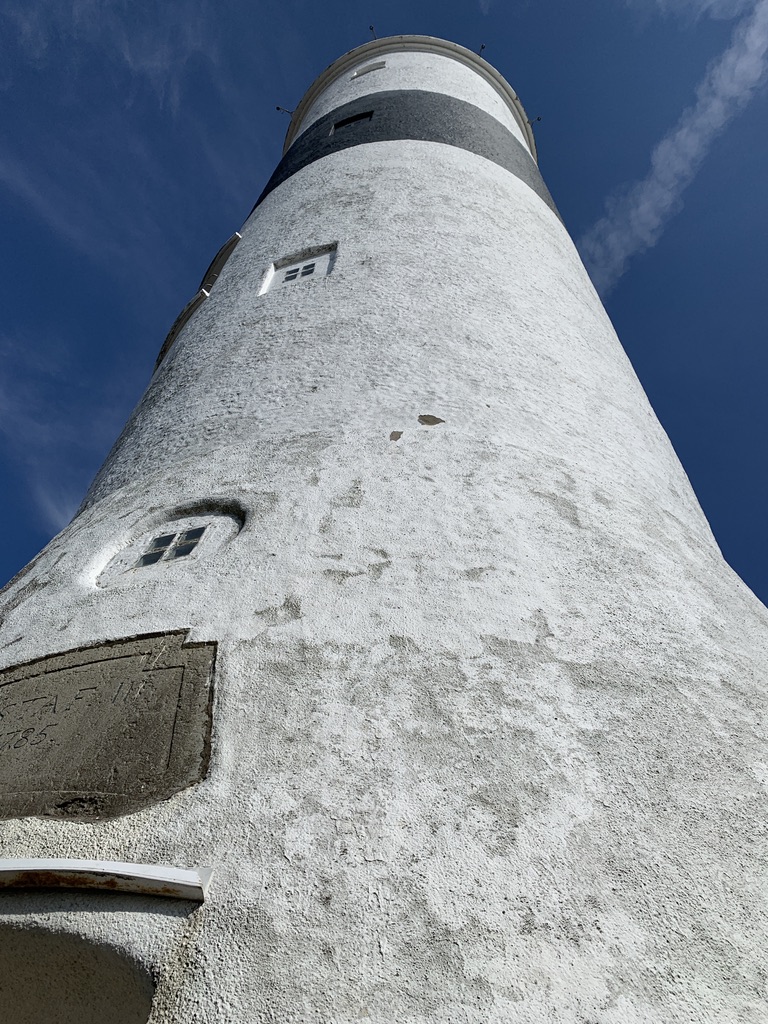
Then I turn round and drive a few kilometers back to a private ‚Stellpläts‘ at the village of Össby, near the windmill of Drottning Öda that I’ve seen on the way. It’s a harvested field, the shed converted into a service room, toilet, shower, even cooking facilities, simple but everything neatly organised and clean – Swedish! There are only a few more campers and I feel much better here then I would have on the crowded campsite further south.
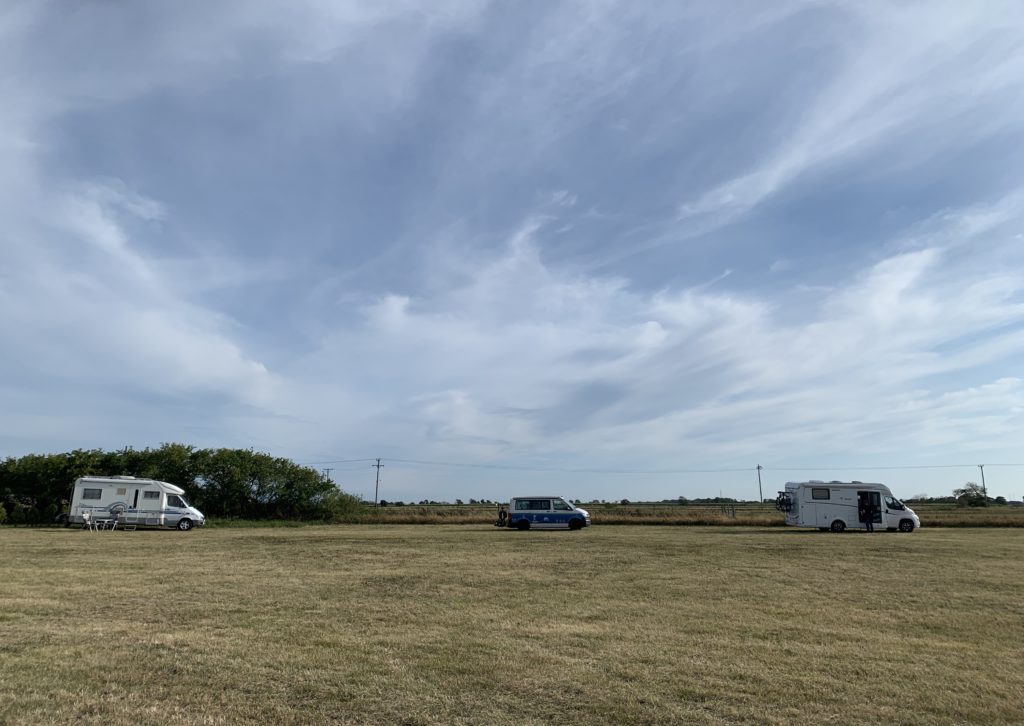
Again, there is space. And I need it. I need these vast skies, the wind, the serenity of it, to allow my thoughts to fly, flow, reshape, gyre, plumet, being discarded.
I cycle down the road to the small hamlet of Össby and to the tiny harbour. There is a table and two chairs waiting to be sit on and I do, looking onto the vast void of the Baltic sea.
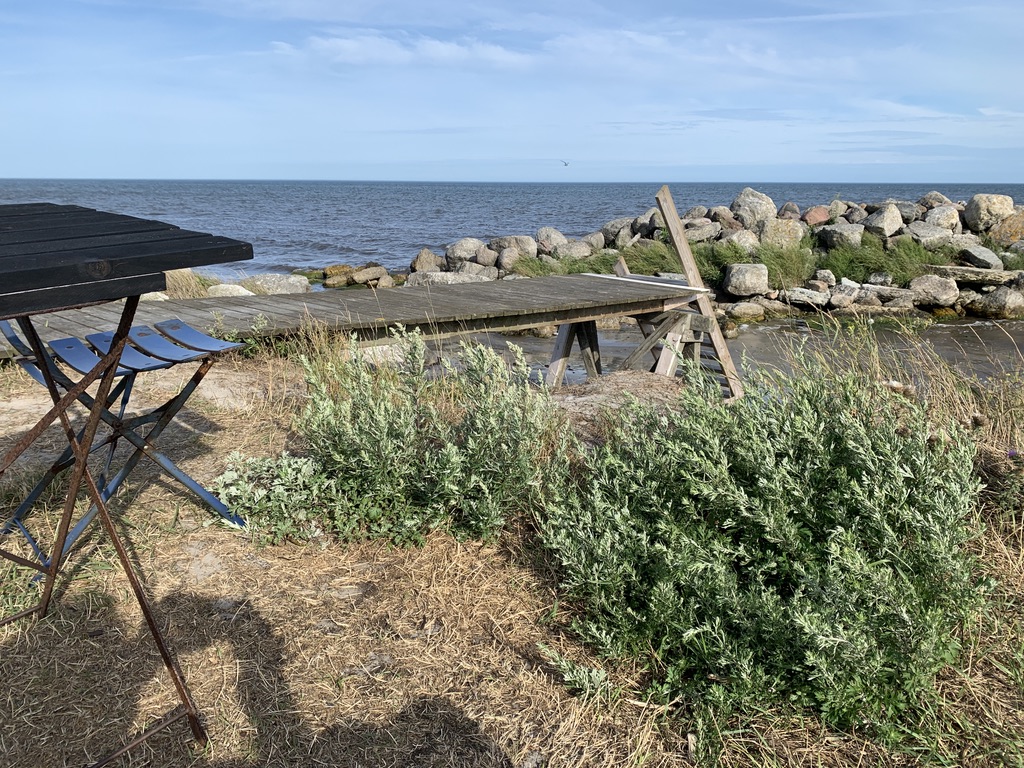
In spite of the rough wind it is cosy behind and in my van. The sunset is gorgeous again. I talk to a friend in Switzerland and then, when I go to the service house once more just before sleeping, night and quietness have fallen onto this strech of land. I am at peace.
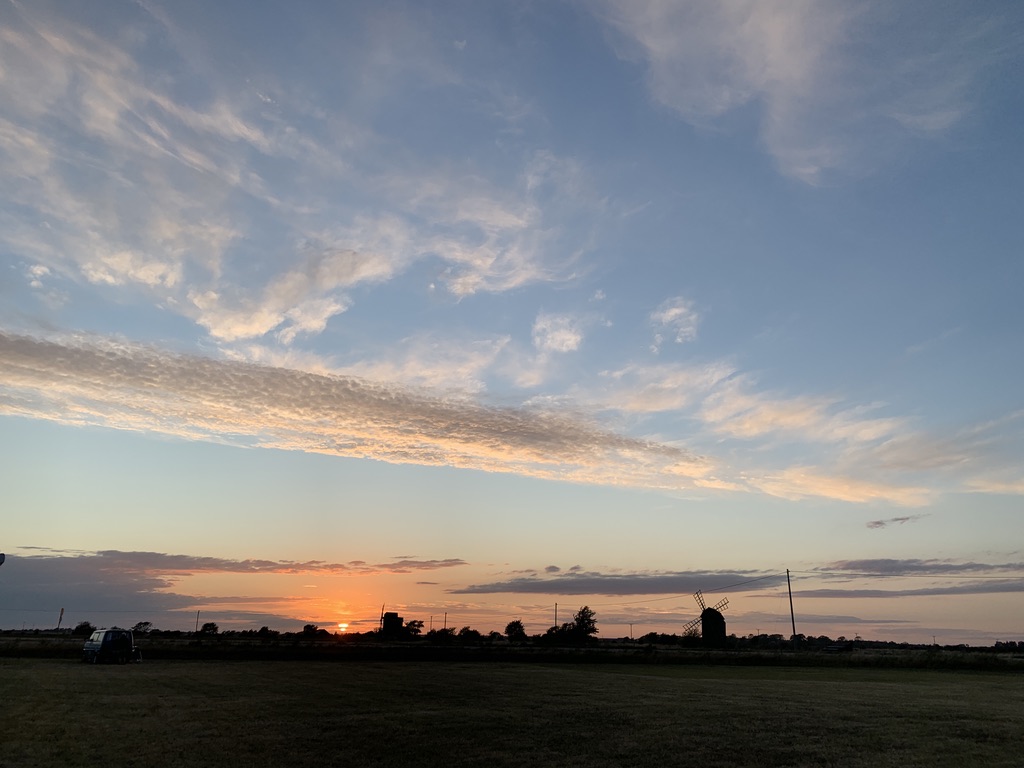
I’ve been working on Jon Krakauer’s „Into the Wild“, the story of 24 year old Chris McCandless, who was so much looking for solitude, kind of finding an inner dialogue with himself, being exposed to minimalised living standards in nature in Alaska. He was not headless nor stupid, even though you may call him naïve. This book was the appropriate lecture for the vast and empty forests of Sweden’s midlands. When Chris McCandless had come to terms with himself – which he actually did at one time, because HAPPINESS ONLY REAL WHEN SHARED and decided to return back to civilisation, he found the route he had taken a few weeks before cut off by a now fast running torrent. The water of the melting glaciers had made the river impassable. Instead of looking for a different way out of the wilderness McCandless wanted to stay in the wilderness until the river would have become passable again. It was then, when he, looking for food, ate some poisonous berries and starved.
Sweden is certainly not a country to be visited for lonely hearts but rather loners. It was good to be exposed to the serenity and placidity of this country. Yet, now I’m slowly longing for more companionship. MacCandless‘ quote also recalls the famous saying by Albert Schweitzer for me: „Happiness is the only thing that is doubled when shared.“ I’d like to thank Martin and Annette, Denise, Mikael, Leonardo and Hilary, the family from La Rochelle, and all the others for talking to me. Solitude is nice, but companionship is nicer.
There it is – the hare greeting the morning.
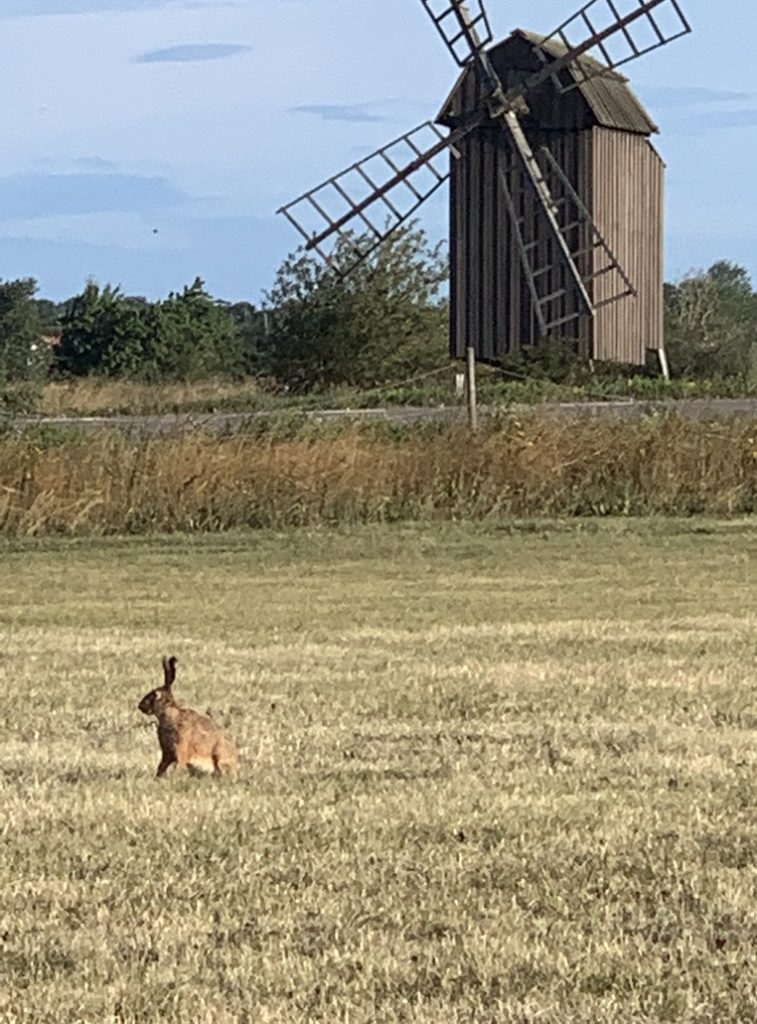
At this stage I have to apologise to my readers for not having published anything for a couple of days. First, I did not have decent internet access even though I do not depend on campsites‘ servers. Secondly, due to some bugs I had major problems with publishing e.g. this post, which I mistakenly thought to be already online but had to rewrite today (7th August 2021).
